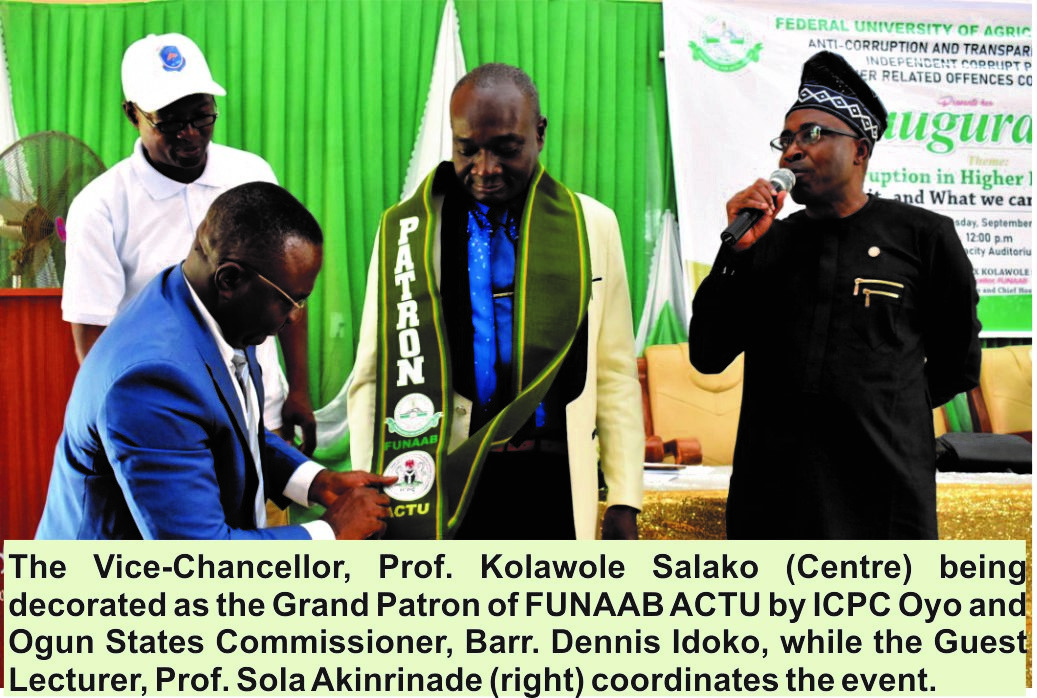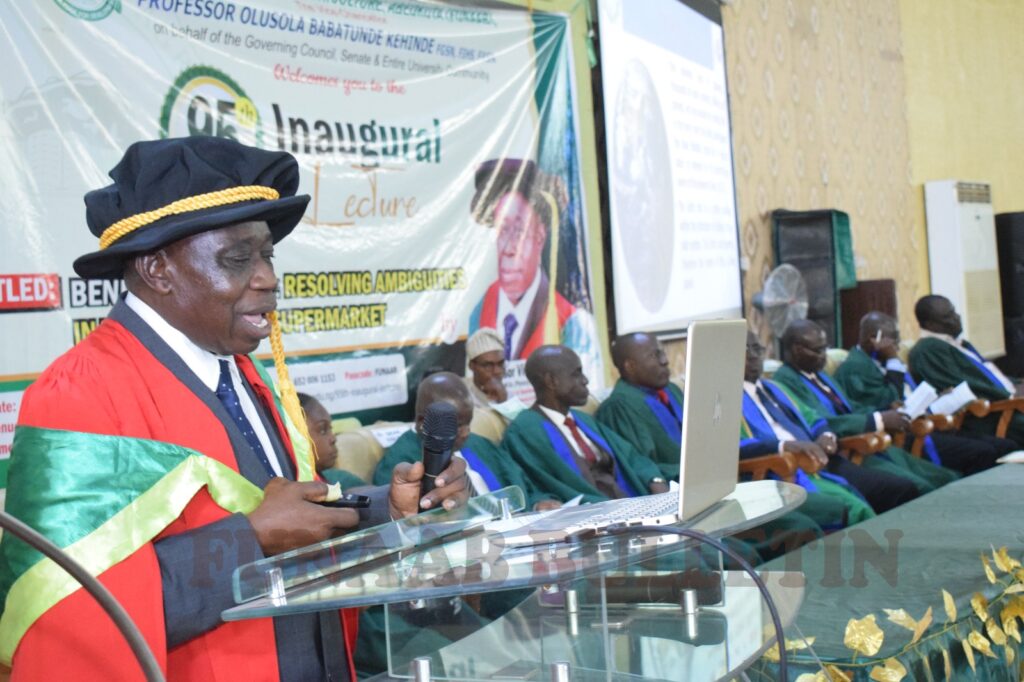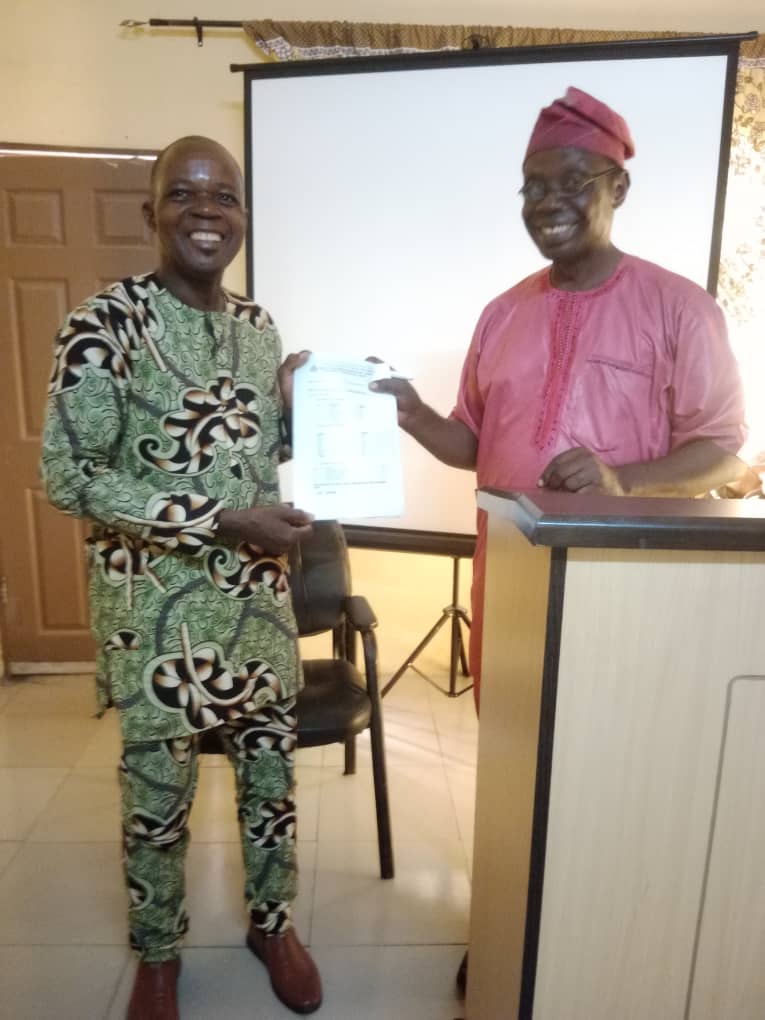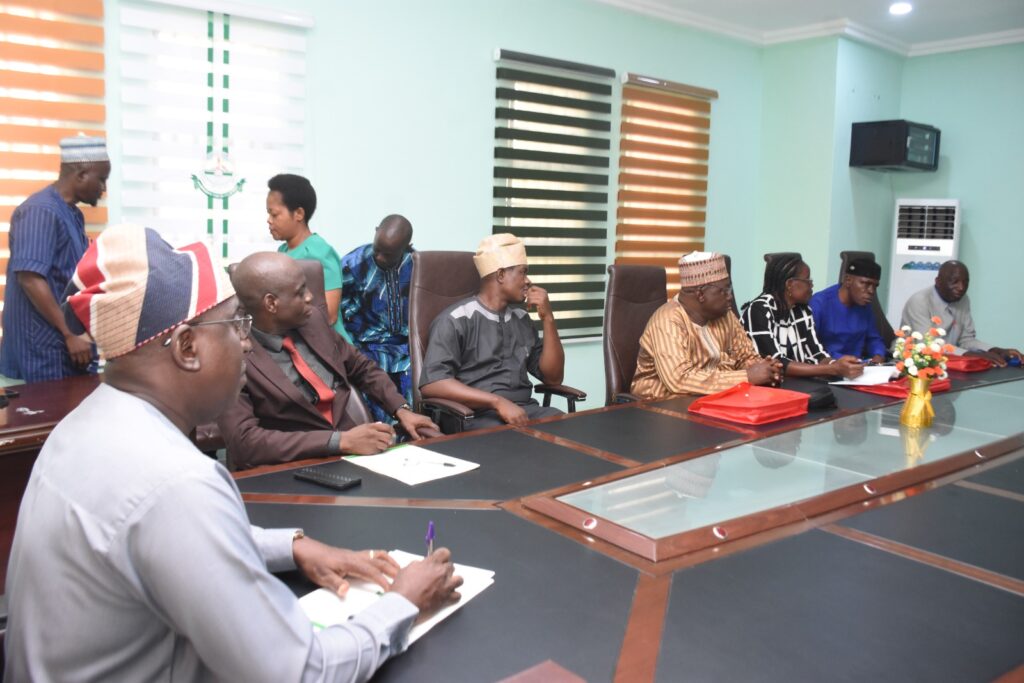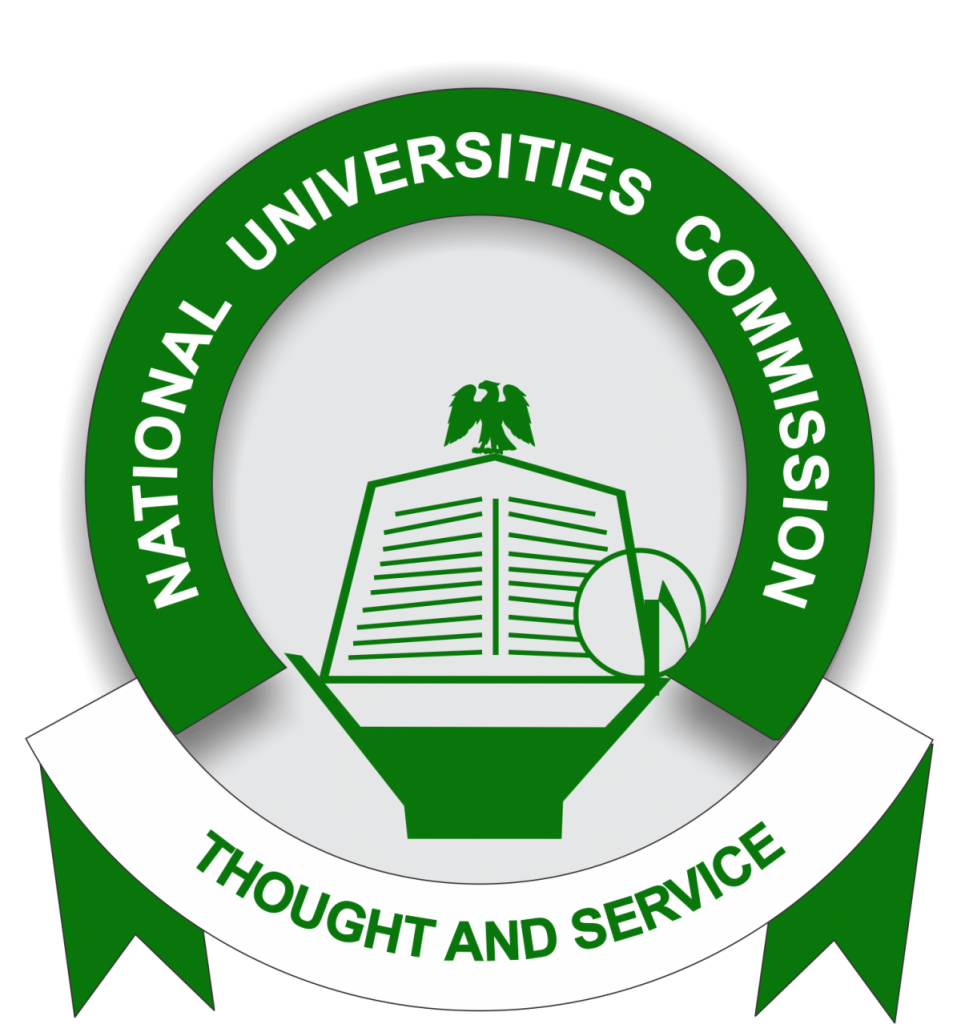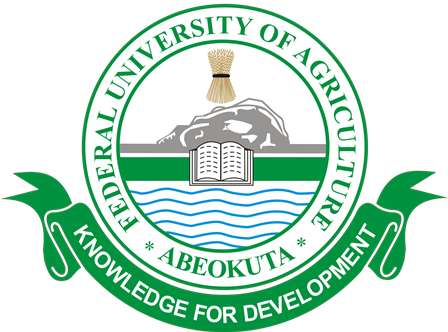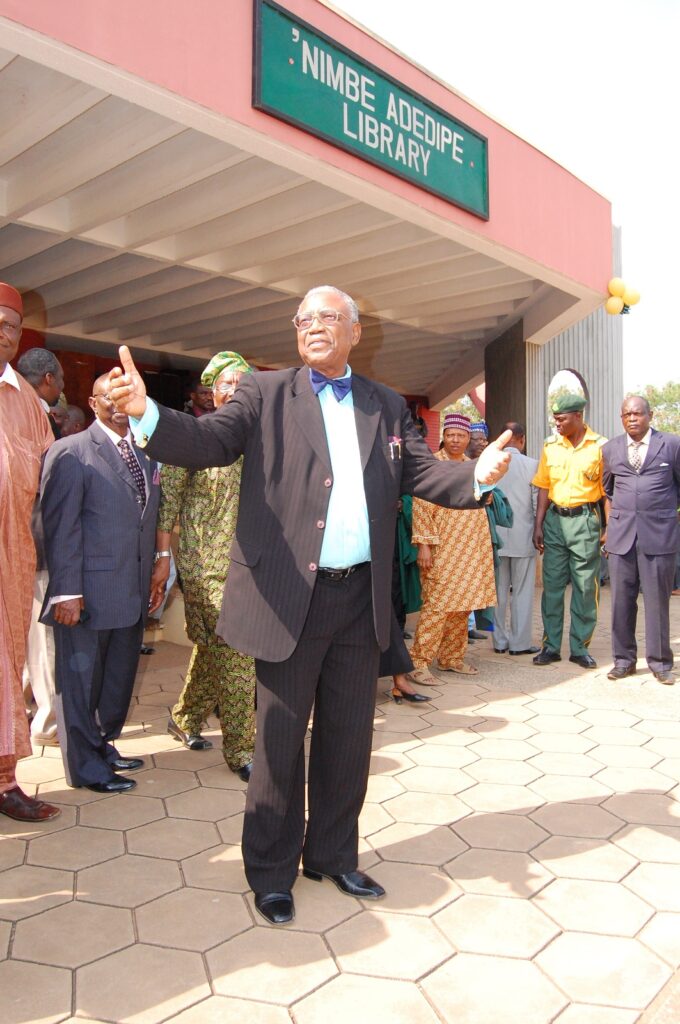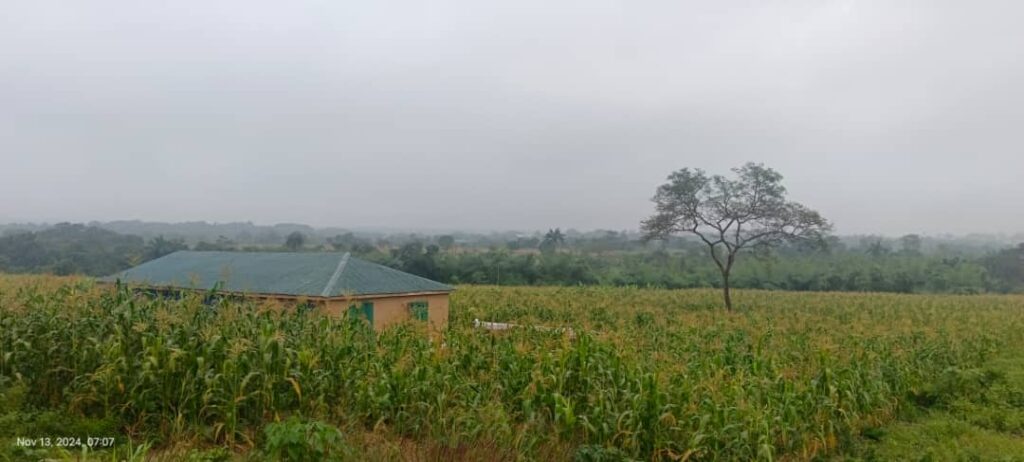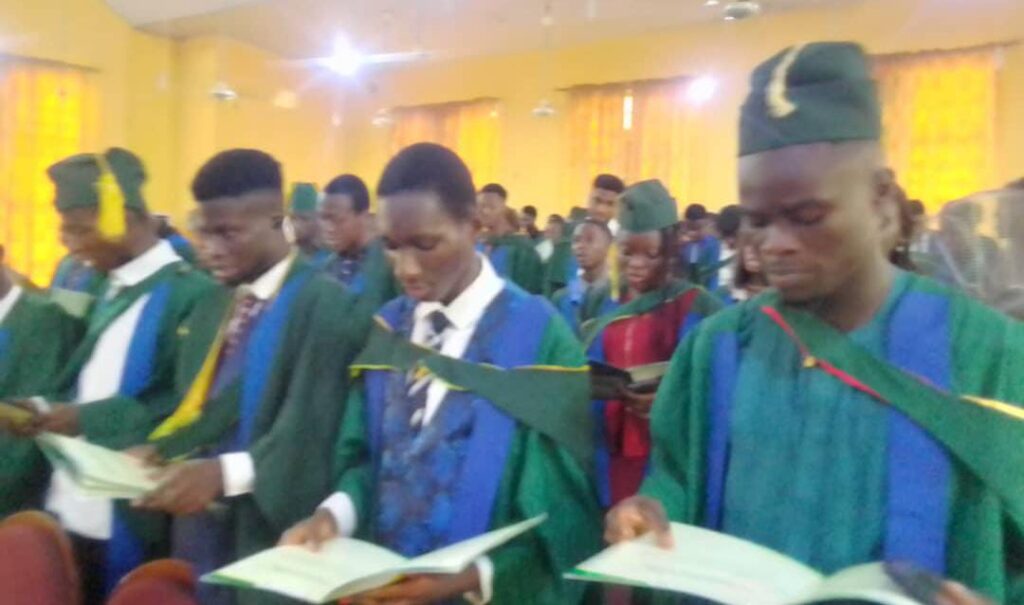…Decries corruption in tertiary institutions
Members of the newly Inaugurated Monitoring Unit of the Anti-Corruption and Transparency Unit (ACTU) of the Independence Corrupt Practices and Other Related Offences Commission (ICPC) in the Federal University of Agriculture, Abeokuta (FUNAAB) have been charged not to persecute or lie against the Management but to ensure that integrity and transparency are entrenched in the activities of the daily running of the University.
A former Provost of the Anti-Corruption Academy of Nigeria (ACAN) and the Pioneer Vice-Chancellor, Osun State University, Prof. Olusola Akinrinade gave the charge while delivering a Lecture titled, “Corruption in Higher Education: What is it, and What we can do about it” during the official Inauguration of the FUNAAB ACTU-ICPC Monitoring Unit.
Speaking as the Guest Lecturer, the University Don also frowned at the high level of corruption that has pervaded the nation’s tertiary Institutions.
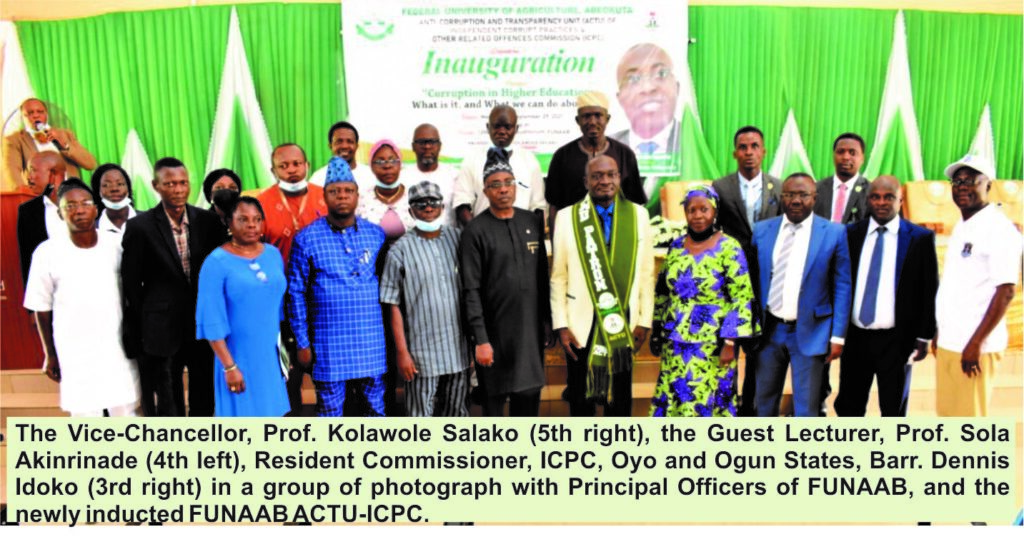
He noted that tertiary Institutions have the primary responsibility of entrenching integrity in their systems because they have the greatest stake in the quality of their outputs and the consequences of the same for their institutional reputation.
Prof. Akinrinade said that corruption in Tertiary Education Sector has gone beyond the prominent “Sex for Mark and Examination Malpractices” alone but violations of established admission process, including payment (in cash and kind),
abuse of examination processes and other assessment-related matters,wrongful graduation and conferral of academic degrees.
According to him, non-adherence to codes of research and other misconducts in research and publications including plagiarism, data falsification and ghostwriting is part of the vices ravaging tertiary institutions
He listed other corrupt practices in higher institutions to include corruption in appointments and promotion processes; rampant sexual harassment and coercion, inappropriate relationship; teacher absenteeism/poor quality teaching/recycled notes; examinations misconducts on part of staff and students including the purchase of grades/deliberate markdowns and research fraud/plagiarism including self-plagiarism.
Also mentioned are predatory publishing – sub-standard journals, Fraudulent online publications; Fraudulent joint publications; Student-centred academic fraud – purchasing thesis online; Use of university resources (including time and facilities) for personal projects; nepotism in appointment/fraud in promotion; Abuse of power and abuse of office.
Cheating on Accreditation: forging of figures on funding, renting of mercenary lecturers, falsifying the figures on staff mix, staff quality and staff-student ratio and official bribing of accreditors, etc.
He noted with dismay,“Sadly, we have come to accept all this as “normal”. Hence, the problem is not that there is a “problem” but our collective refusal to admit there is a problem. This is the story, or worse, for the larger Nigerian University System. Not all of us in the higher education system are sexual perverts and thieves as the public is made to believe. But we have our fair share!” he added.
Lamenting further, Prof. Akinrinade said that “When the system is corrupted, public trust in higher education is greatly undermined, quality is compromised, values are distorted and unqualified young professionals are released into the political and economic life of the society”.
Speaking further, “Corruption compromises the output of the University system, including and most importantly, it research output. In this regard, it is dangerous to predicate national development plans, policies and programmes on faulty research”.
He condemned the act of corruption, saying that it is not good for any facet of our life,noting that it is destructive to good governance and the overall welfare of society.
The pioneer Vice-Chancellor of Osun State University pointed out that “Corruption in the educational sector is even more calamitous in terms of its negative impact on society. This is especially so in higher education, where the so-called leaders of tomorrow are produced”.
The Guest Lecturer advised that University systems must have two categories of actions, which are, education system-specific measures to entrench integrity in university processes and administrative measures to control corruption.
In his Goodwill Message, the ICPC Resident Anti-Corruption Commissioner for Oyo and Ogun States,Barr. Dennis Idoko tasked the new members of the Anti-Corruption Unit to be fully aware that the job before them is enormous and require them to give their utmost best in terms of individual sacrifices, sincerity, integrity and dedication to the cause of corruption.
In his Acceptance Speech, the newly inaugurated Chairman, ACTU FUNAAB who is also the Director, Works and Services, FUNAAB, Engr. Olawole Akinyele thanked the University Management for the confidence reposed in him and other members of the team.
He described the task as enormous, saying they have been trusted with driving the anti-corruption crusade in FUNAAB through ACTU.
Engr. Akinyele said that corruption in Nigeria has become a societal problem that cuts across all strata of the society and as such all hands must be on deck to eradicate it as it is detrimental to the nation’s development.

